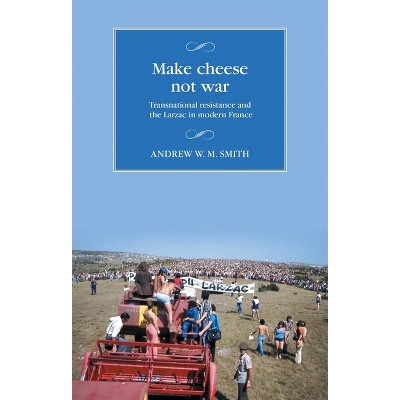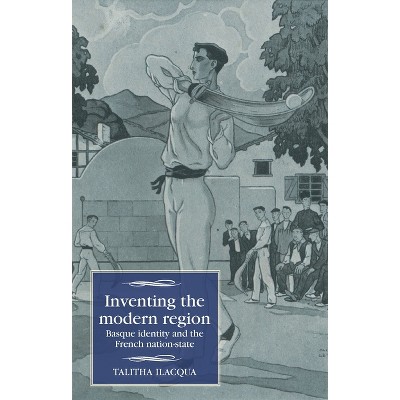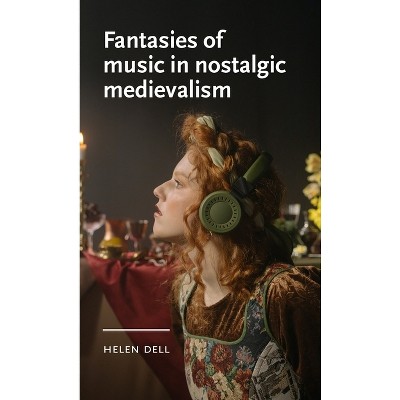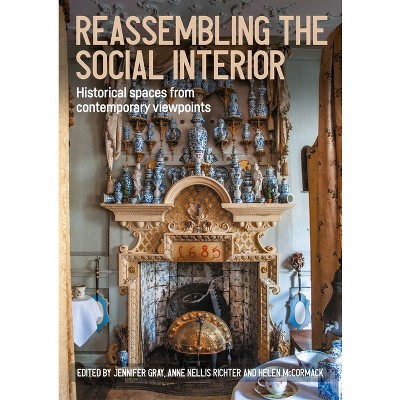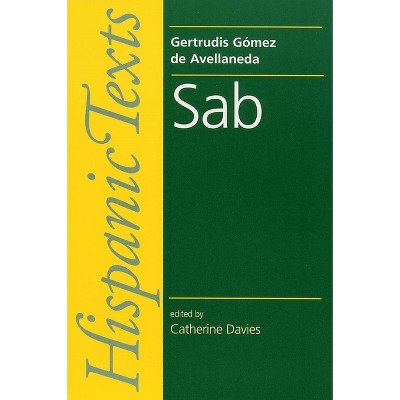Herminie and Fanny Pereire - (Studies in Modern French and Francophone History) by Helen M Davies

About this item
Highlights
- Herminie and Fanny Pereire were sisters-in-law, married to the eminent Jewish bankers and Saint-Simonian socialists Emile and Isaac.
- About the Author: Helen M. Davies is a Fellow of the School of Historical and Philosophical Studies at the University of Melbourne
- 340 Pages
- History, Modern
- Series Name: Studies in Modern French and Francophone History
Description
About the Book
This book, a companion to the author's acclaimed Emile and Isaac Pereire (2015), sheds new light on elite Jewish families in nineteenth-century France.Book Synopsis
Herminie and Fanny Pereire were sisters-in-law, married to the eminent Jewish bankers and Saint-Simonian socialists Emile and Isaac. They were also mother and daughter. This book, a companion to the author's acclaimed Emile and Isaac Pereire (2015), sheds new light on elite Jewish families in nineteenth-century France. Drawing on the family archives, it traces the Pereires across a century of major social and political change, from the Napoleonic period to the cusp of the First World War, revealing the active role they played as bourgeois women both within and outside the family. It offers insights into Jewish assimilation, embourgeoisement and gender relations, through the lens of one of the most fascinating families of the century.
From the Back Cover
Herminie and Fanny Pereire were remarkable women of the French Jewish elite. Emerging from a Sephardic family that adapted early to acculturation with French society, they played essential but often unremarked roles in the lives and spectacular businesses of their husbands, Emile and Isaac Pereire, who were prominent bankers, financiers, and industrialists in nineteenth-century France.
Family provided the solid foundation on which the Pereire brothers depended, supporting and propelling a financial and industrial empire. Herminie and Fanny were entrusted with the construction of a close, intimate circle of family and friends. But they not only built a domestic life that was calm, stable, and united, and contributed substantially to the public face their husbands enjoyed. They also enabled the Pereire businesses to flourish - as was expected of women of their class - and played an often-unacknowledged role in those businesses. In illuminating the lives of Herminie and Fanny Pereire, the book overcomes the invisibility of women of their class. It draws attention to their exceptional qualities, and brings to light their individuality, giving them definition, form, and, most importantly, agency. Based on extensive analysis of family letters contained in the Pereire Family Archive in Paris and other archival sources in France, this volume is a fascinating study of a prominent Jewish family in nineteenth-century France.Review Quotes
'This is an excellent successor to Helen Davies' very favourably-reviewed study of Emile and Isaac Pereire, published by Manchester University Press in 2015...This thoroughly researched and well-judged study, which sets out a very complex story clearly, is essential reading for specialists in nineteenth-century European and religious history and a vital and innovative detailed work of reference for anyone interested in the role of French Jews.'
Pamela Pilbeam, Modern and Contemporary France
'The lives of Herminie and Fanny Pereire as presented in this study amply illustrate some of the "broad and weighty themes" of nineteenth-century French history. Through their lives we observe the rise of a grande bourgeoisie in which women played roles vital to family success. We also observe the unfolding impact on the Jewish community of the emancipation extended by the French Revolution and the variety of ways in which Jewish families responded to its demands and possibilities... Yet the final image she leaves is that of the courage and resourcefulness of two remarkable women as they pursued its possibilities.'
Susan Foley, Napoleonica the journal
About the Author
Helen M. Davies is a Fellow of the School of Historical and Philosophical Studies at the University of MelbourneShipping details
Return details
Trending Non-Fiction






